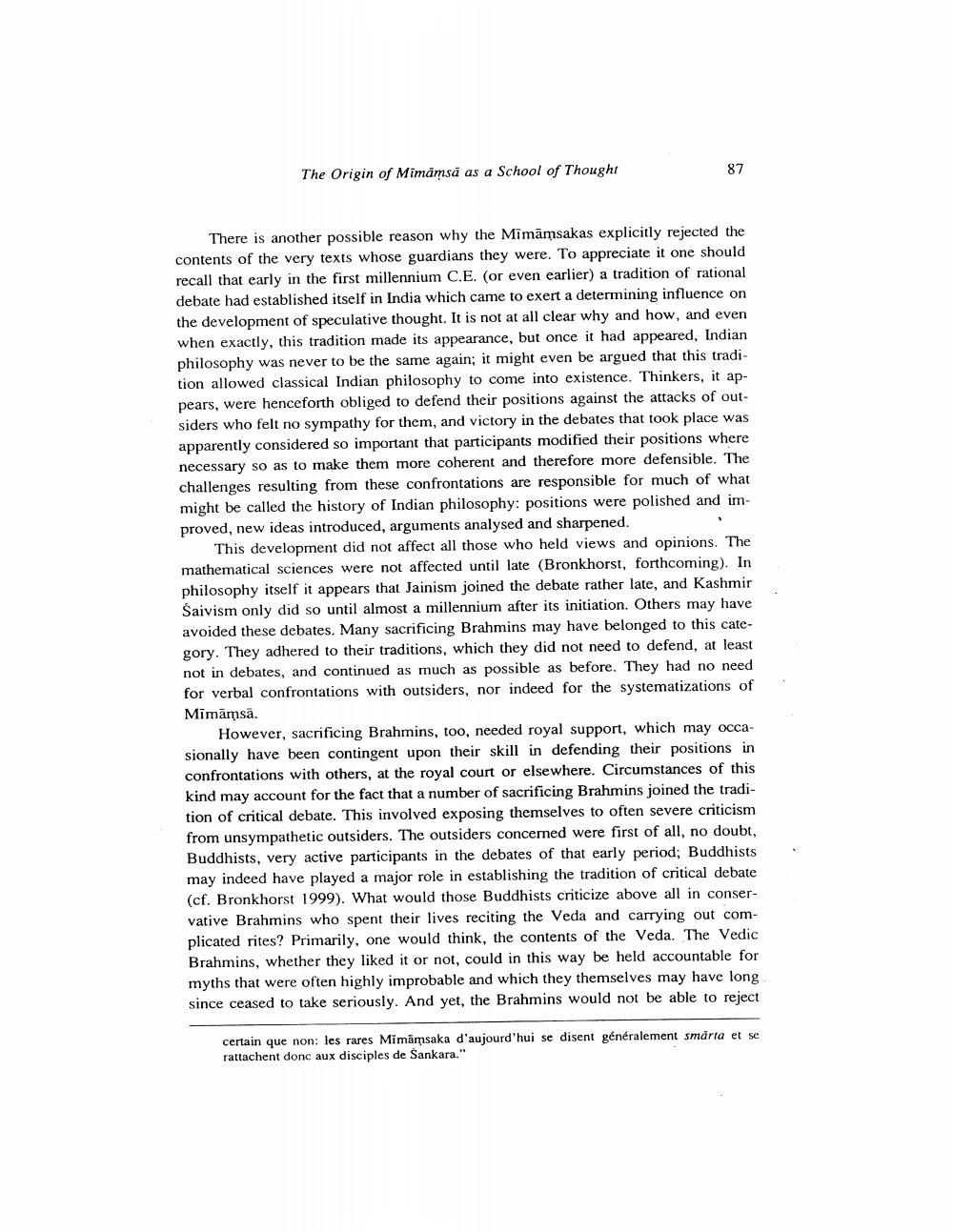Book Title: Origin Of Mimamsa As A School Of Thought A Hypothesis Author(s): Johannes Bronkhorst Publisher: Johannes Bronkhorst View full book textPage 5
________________ The Origin of Mimamsá as a School of Thought 87 There is another possible reason why the Mimāmsakas explicitly rejected the contents of the very texts whose guardians they were. To appreciate it one should recall that early in the first millennium C.E. (or even earlier) a tradition of rational debate had established itself in India which came to exert a determining influence on the development of speculative thought. It is not at all clear why and how, and even when exactly, this tradition made its appearance, but once it had appeared, Indian philosophy was never to be the same again; it might even be argued that this tradition allowed classical Indian philosophy to come into existence. Thinkers, it appears, were henceforth obliged to defend their positions against the attacks of outsiders who felt no sympathy for them, and victory in the debates that took place was apparently considered so important that participants modified their positions where necessary so as to make them more coherent and therefore more defensible. The challenges resulting from these confrontations are responsible for much of what might be called the history of Indian philosophy: positions were polished and improved, new ideas introduced, arguments analysed and sharpened. This development did not affect all those who held views and opinions. The mathematical sciences were not affected until late (Bronkhorst, forthcoming). In philosophy itself it appears that Jainism joined the debate rather late, and Kashmir Saivism only did so until almost a millennium after its initiation. Others may have avoided these debates. Many sacrificing Brahmins may have belonged to this category. They adhered to their traditions, which they did not need to defend, at least not in debates, and continued as much as possible as before. They had no need for verbal confrontations with outsiders, nor indeed for the systematizations of Mimāmsa. However, sacrificing Brahmins, too, needed royal support, which may occasionally have been contingent upon their skill in defending their positions in confrontations with others, at the royal court or elsewhere. Circumstances of this kind may account for the fact that a number of sacrificing Brahmins joined the tradition of critical debate. This involved exposing themselves to often severe criticism from unsympathetic outsiders. The outsiders concerned were first of all, no doubt, Buddhists, very active participants in the debates of that early period; Buddhists may indeed have played a major role in establishing the tradition of critical debate (cf. Bronkhorst 1999). What would those Buddhists criticize above all in conservative Brahmins who spent their lives reciting the Veda and carrying out complicated rites? Primarily, one would think, the contents of the Veda. The Vedic Brahmins, whether they liked it or not, could in this way be held accountable for myths that were often highly improbable and which they themselves may have long since ceased to take seriously. And yet, the Brahmins would not be able to reject certain que non: les rares Mimamsaka d'aujourd'hui se disent généralement smärta et se rattachent donc aux disciples de Sankara."Page Navigation
1 ... 3 4 5 6 7 8 9 10 11 12 13 14 15 16 17 18 19 20 21
